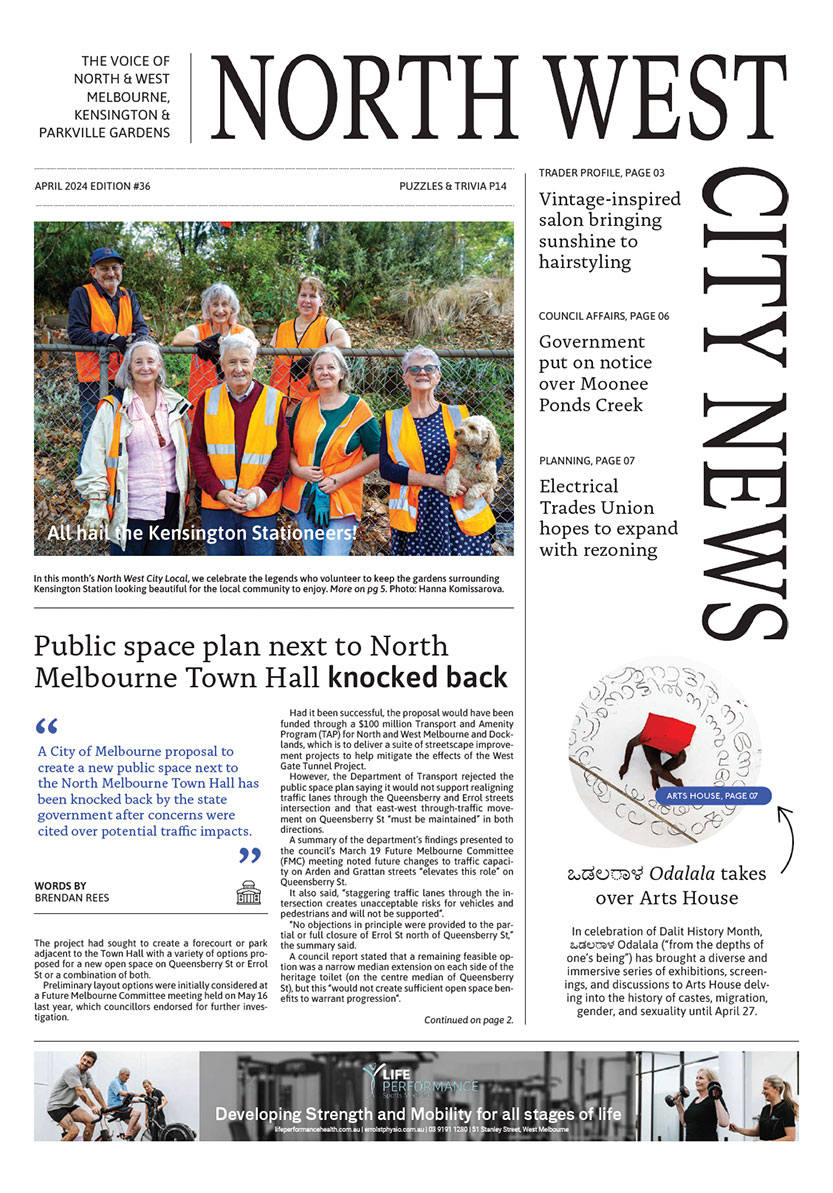E-scooter trial extension sees calls for safety improvements reiterated
North West Melbourne residents and pedestrian safety advocates are hoping that the state government’s extension of the electric scooter hire scheme will see safety improvements and enforcement of rules such as illegal footpath riding addressed.
Minister for Roads Melissa Horne announced in March a six-month extension to the trial, which was launched in January last year and has seen 3.7 million short trips in Melbourne through scooter hire companies Lime and Neuron.
Private scooters were classified as unregistered vehicles, with their use in public spaces attracting a $925 fine, but this ban was lifted when the changes came into effect from April 5.
Under the trial’s extension, e-scooters will be permitted on roads with a speed limit of 60km/h or less, up from the 50km/h limit that was in place. They can be ridden on roads, in bicycle lanes, on bicycle paths or separated and shared paths, but will remain illegal on footpaths.
The minimum age of riders will also be lowered from 18 to 16 but all riders must still wear a helmet and adhere to the same blood alcohol content and drug use restrictions as motorists. Riders cannot consume alcohol while travelling on an e-scooter. E-scooters cannot travel above 20km/h while devices capable of travelling faster than 25km/h are not classified as e-scooters and are still illegal.
Therese Fitzgerald, a member of local group the Kensington Association, said while they supported a more sustainable mode of transport that reduced carbon emission and provided an alternative to cars and motorbikes, there were still a “whole lot of things that haven’t really been looked at all”.
This included policing illegal footpath riding and ensuring insurance policies were in place so that third parties, such as pedestrians, were covered if they were struck by a rider using a footpath or not wearing a helmet.
“There’s lots of reasons why they’re good, they cut down carbon footprint and allow young people to move around … but it really has come upon us quickly and we don’t have any real control,” she said.
Ms Fitzgerald said residents also queried why a recent City of Melbourne online community survey titled the Kensington and North Melbourne pedestrian safety and walkability did not include e-scooters: “There has to be a lot of things looked at really and I don’t know if the study is doing that in sufficient detail.”
She said the dangers of e-scooters needed to be considered with the Melbourne North Police Community Consultative Committee having heard concerns from residents, including two people having been injured by e-scooters, however these incidents occurred outside the City of Melbourne municipality.
Victoria Police Assistant Commissioner for Road Policing, Glenn Weir, said Victoria Police’s role in the e-scooter trial “has always been about enforcement, and this doesn’t change”.
“We will continue to enforce the e-scooter rules in line with the extended trial,” he said.
“The extended trial will help us to understand further how both hire and privately owned e-scooters can be used safely.”
Mr Weir added Victoria Police had advocated its position regarding e-scooters in conjunction with other road safety partners, “however, we respect the decision of government”.
Victoria Walks executive Ben Rossiter said while their organisation supported different modes of transport to move around the city, it “has repeatedly called for measures including investment in more separated bike lanes that would reduce the rampant use of e-scooters on footpaths, as well as e-scooter rider insurance to cover walkers being hit on footpaths”.
The state government said further work would be carried out during the trial extension to understand product safety standards, rider education and if any changes to penalties were needed.
Government data from the trial showed about 400 tonnes of carbon had been saved through e-scooter use, with riders hiring e-scooters mainly for leisure, social events, commuting and visits to cafes. •

Jo Ryan unveils Ordered Chaos at Blender Studios





 Download the Latest Edition
Download the Latest Edition